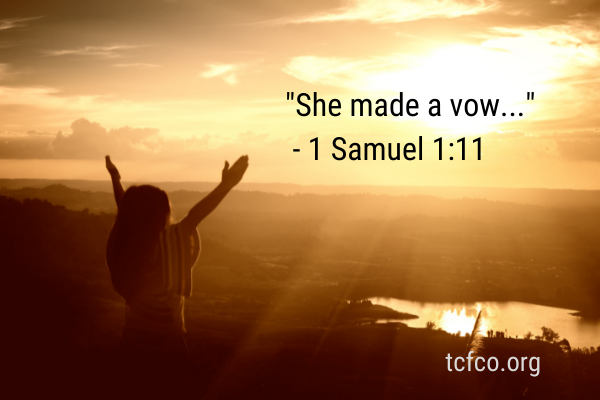1. Changed Perspective Midst of Sorrow
The book of 1 Samuel starts with a woman in sorrow (Hannah) for not having children. In addition, Hannah was taunted and provoked by Peninnah for her childlessness (Peninnah is another wife of Hannah’s husband and she has several children), and this went on year after year (1 Samuel 1:6-7).
While Hannah’s anguish is understandable, something seems to have changed in her perspective and purpose on that day described in 1 Samuel 1:10-11, as she prayed. We know that something changed because immediately after the prayer, “she went her way and ate something, and her face was no longer downcast” (1 Samuel 1:18).
2. She Made a Vow
In her prayer in 1 Samuel 1:10-11, Hannah “made a vow”: “If You will indeed look on the affliction of Your bond-servant and remember me, and… give Your bond-servant a son, then I will give him to the LORD all the days of his life, and a razor shall never come on his head.”.
So she committed her yet-to-be-born son to a Nazarite vow and to the temple, which practically makes the son not available for her!
2. Higher Purpose in Response to Sorrow
Hannah’s response to her sorrow (and provocations) was to focus on a higher purpose that is God-centered and to be a blessing to others. When she gave birth to a child (Samuel) her prayer is recorded in 1 Samuel 2:1-10. We see in that prayer, that her concerns/priorities were no longer petty squabbles and societal pressures, but rather on the reflections on God, truth, justice, how God exalts the humble, the messianic hope for humanity, etc.
2.1 Maturity Purpose as Impact of Prayer
Prayer brings such spiritual, intellectual, and emotional maturity; drives the right sense of purpose; drives us to our role in God’s big picture, and makes us a blessing to others.

